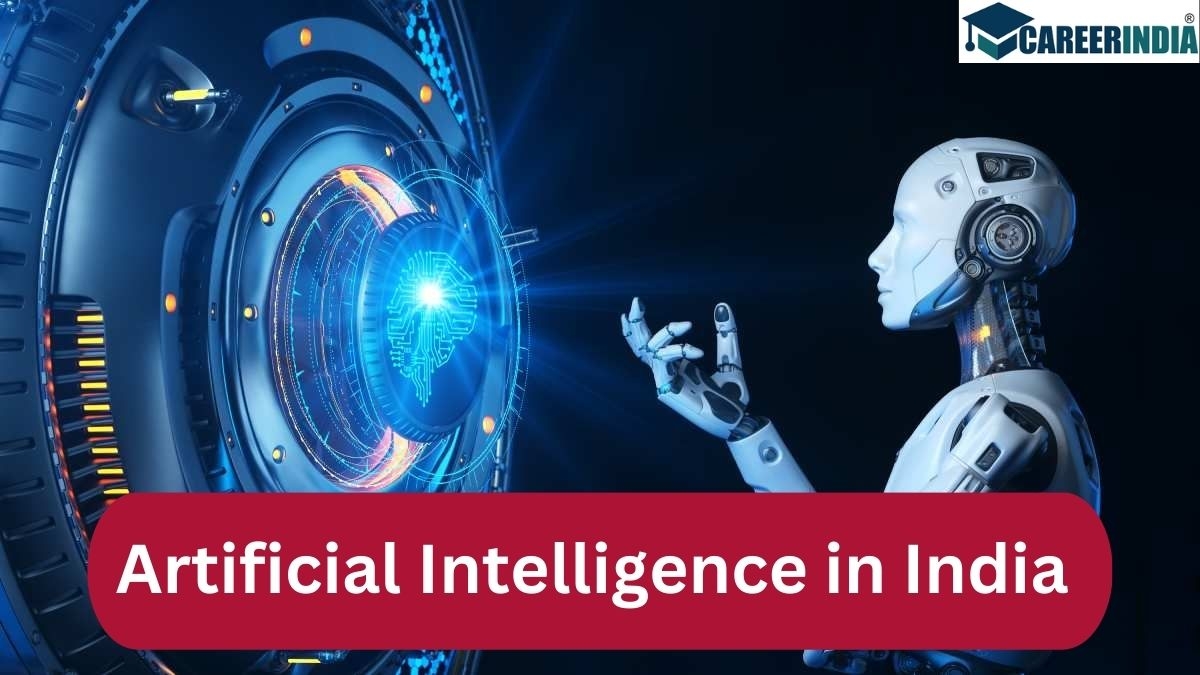The ability of machines with artificial intelligence capabilities to use pre-existing text, audio files, or images to create new content is known as generative AI. The application of Generative AI is still in its infancy, and as technology develops and advances, its influence is likely to increase. The creation of these technologies and their quick spread in industries including manufacturing, healthcare, finance, and others are recognised by the government.
The government views artificial intelligence (AI) as a vital facilitator for the expansion of our digital economy, as well as for investments and job opportunities. Prime Minister Modi was quoted as saying, “Any society that does not innovate, stagnates,” According to Goyal, artificial intelligence would genuinely serve as a driver for India’s progress.
He claimed that the “Made in India” initiative combined with AI technology would make India the global manufacturer of both technology and equipment. He stated that the vast skill pool in the nation will undoubtedly aid in the exploration of innovative applications for AI in all spheres of economic activity.

The NITI Aayog-prepared national artificial intelligence plan for India has outlined the best course of action for utilising artificial intelligence (AI) in a variety of contexts. India benefits from the use of artificial intelligence (AI) methods and initiatives to meet societal demands in sectors like healthcare, education, agriculture, smart cities and infrastructure, including smart mobility and transportation, using such dynamic data. Around the beginning of the twenty-first century, electronics were found in practically every produced good.
Nowadays, data gathering, processing, and computing power have made amazing strides. Today, intelligent systems can be used for a number of decisions and tasks to improve productivity and provide greater connectivity. This article examines the growth of AI, its range of applications globally, and its progress in India.
Evolution of AI
1950s Neonate: Culturing the idea of AI
1970s Infant: Brain Storming stage of AI
1980s Reignition: Funding and algorithm generation
2000s Beta Stage: Availability of computing hardwares to install algorithm
2010s Full Bloom: Intensive use cases (IoT, VR, AR, Big Data)
India’s ecosystem for AI research and intelligence
India is ranked 10th in the world for research and has 386 of the 22,000 PhD-educated researchers in the globe.
In the world, India came in at number 13 with 44 excellent presentations at major AI conferences.
Framework for promoting Artificial Intelligence Research in India
Interdisciplinary Cyber Physical Systems (IM-ICPS) has suggested the following four-tier framework for promoting AI research
a) ICON (International Centres of New Knowledge)
b) CROSS (Centre for Research On Sub-Systems)
c) CASTLE (Center for Advanced Studies, Translational research and Leadership): focusing on development and deployment of application based research
d) CETIT (Centre of Excellence in Technology Innovation and Transfer)
AI Research in India
A two-tiered integrated strategy is suggested to advance both fundamental and practical AI research
1. COREs (Centres of Research Excellence in Artificial Intelligence): According to the IM-ICPS framework, COREs will execute the duties of both ICON and CROSS by focusing on the core research of AI.
2. ICTAI (International Centre for Transformational Artificial Intelligence): According to the IM-ICPS framework, ICTAIs will execute the duties of both CASTLE and CETIT by providing the ecosystem for application-based technology development and deployment.
AI Opportunities in India
AI has the potential to stimulate Growth rate by facilitating
(a) Intelligent automation, or the capacity to automate complex physical world processes that call for industry-wide flexibility and agility,
(b) Labour and capital augmentation: enhancing human capabilities, enhancing capital efficiency, and enabling humans to concentrate on roles that offer the most value.
(c) Promoting innovation diffusion, or advancing innovations as they spread throughout the economy.
Initiatives By The Government
Government of India has taken several steps to promote upskilling or reskilling in the field of Artificial Intelligence which include the following
Ministry of Electronics and IT (MeitY) has initiated a programme titled FutureSkills PRIME (www.futureskillsprime.in) in collaboration with NASSCOM, a B2C framework for re-skilling/ up-skilling of IT professionals in 10 Emerging areas including Artificial Intelligence. So far, 7 Lakh candidates have signed-up on the FutureSkills PRIME Portal, out of which, 1.2 lakh candidates have completed their courses.

In addition, 524 Trainers and 4292 Government Officials have been trained on these technologies by NIELIT/C-DAC Resource Centres, and around 1.3 lakh unique learners have collectively earned 8.9 lakh ‘badges’ in recognition of having completed bite- sized digital fluency content.Under Artificial Intelligence, 36,528 candidates are enrolled in deep- skilling courses and 47,744 candidates are enrolled in Foundation courses.
Government has published the National Strategy for Artificial Intelligence in June 2018 and proposes to develop an ecosystem for the research and adoption of Artificial Intelligence i.e. #AIFOR ALL.
Government has launched ‘National AI Portal’ (https://indiaai.gov.in/) which is a repository of Artificial Intelligence (AI) based initiatives in the country at a single place. As on date, there are 1024 national and international articles, 655 news, 200 videos, 90 research reports, 279 Startups, 120 Government initiatives listed at National AI Portal.
In addition, various steps have been taken to promote capacity building in Artificial Intelligence which include the following
Government has initiated ‘Visvesvaraya PhD Scheme’ with an objective to enhance the number of PhDs in Electronics System Design & Manufacturing (ESDM) and IT/IT Enabled Services (IT/ITES) sectors in the country. The research areas under the scheme include Artificial Intelligence (covering 82 PhD fellows) and Machine Learning (covering 59 PhD fellows).
National Programme on Responsible Use of AI for Youth: With the objective to empower the youth to become AI ready and help reduce the skill gap, the government along with Industry partners has started this initiative to promote AI awareness among Government school going children.
In Phase I, 50,666 students and 2536 teachers from 2252 schools from 35 States and UTs attended orientation sessions on AI. In Phase II, 100 teams have been shortlisted and have undergone extensive mentoring by AI experts. In Phase-III, Top 20 students have demonstrated their solutions in the national conference.

